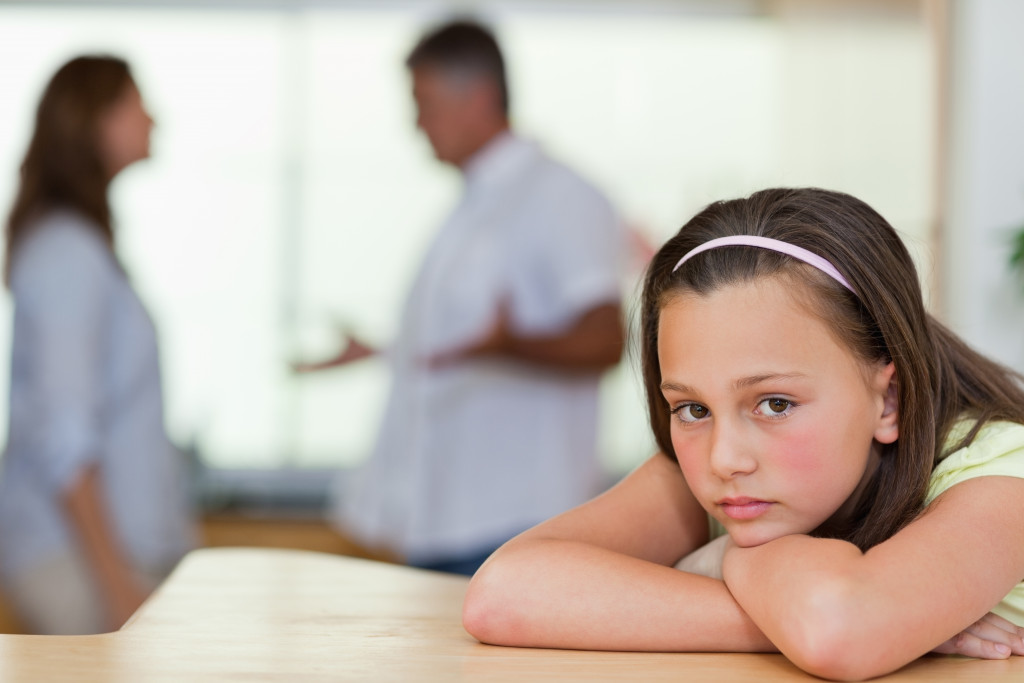Divorce is a complex and incredibly stressful experience for all involved, especially for the child in the middle. Studies have shown that divorce profoundly impacts children’s lives, both in the short term and long term.
In the immediate aftermath of a divorce, children can suffer from emotional distress. They may feel confusion, insecurity, guilt, anger, or sadness at their parents’ separation. These feelings are often further complicated by concerns over how their family dynamic will change—they may worry about being forced to move away from family or friends or having to transition between two homes. Additionally, they may feel like they need to “take sides” with their parents, even if they don’t want to choose one parent over another.
In the long term, children of divorced parents often suffer academically and experience lower self-esteem than peers with married parents. Fortunately, there are steps parents can take to ease the transition and help their children cope with divorce.
Open Communication
It is essential to be honest with your child if you are going through a divorce. Divorce can make children feel confused, sad, and angry. They may also worry about having two homes or not being able to see their friends and family as much. Being open with them can help them cope better with the changes and make them feel secure.
However, you must be careful with how you approach the situation, especially when kids are much younger. Kids can often misinterpret what you say and think the divorce is their fault, so try to be gentle when discussing it.
Providing a safe space for your child to express their feelings is also essential. Ask questions, listen carefully, and reassure them when they need it most. Discussing how the two of you will co-parent with your partner will also help your children better understand the situation.
Create a Sense of Stability
Divorce can be very destabilizing for children, so it’s essential to try and provide them with structure and stability as much as possible. This includes setting up a consistent routine with bedtimes, meal times, and family activities that are familiar and enjoyable for them.
It is also essential to maintain consistency when switching between households. Keeping things such as school supplies, toys, clothes, etc., divided between both homes can help make the transition easier for your child.
Moreover, both parents should explicitly agree on how to handle discipline, bedtimes, and other rules. A consistent plan in both households will help your child feel secure and less confused amid all the changes.
Finally, it’s important to show support for each other as co-parents. Avoid speaking negatively about each other in front of your children or putting them in the middle of any disputes you may have. Children should be able to love and look up to both parents without feeling like they need to pick sides.
Finalize Asset Transfers

It often takes two people to build a household. However, it can take two people to break it down as well. If you are going through a divorce, you and your partner will have to divide up financial assets, such as property and bank accounts, to move on.
This process can be tricky and even confusing at times, especially if the relationship between the couple is strained. Consulting a trustworthy divorce lawyer can help ensure that all necessary information is filed correctly and that both parties understand their rights regarding asset distribution.
Children will benefit from the assets that the parent they live with will get, so make sure you prioritize your child’s wellbeing when negotiating the final settlement. It will be essential that all household items related to a child’s needs end up with the parent responsible for raising them.
Seek Professional Help
Divorce can be overwhelming and challenging to navigate, so it’s essential to seek help from a professional. A therapist or psychologist can help your children process their feelings and cope with the challenges of divorce in a healthy way. They can provide valuable insights on handling any conflicts that arise between you and your partner and offer support during this difficult time.
However, some children might not be comfortable talking to a therapist, so it’s crucial to find an approach that works best for them. Online support groups and resources are also available for children and parents going through a divorce.
Final Thoughts
Divorce is never easy, but with the right help and support, you can make sure your children transition as smoothly as possible. Being honest and open about the process, creating a sense of stability in their lives, finalizing asset transfers properly, and seeking professional help when necessary are all critical steps toward helping your child cope during this difficult time.

